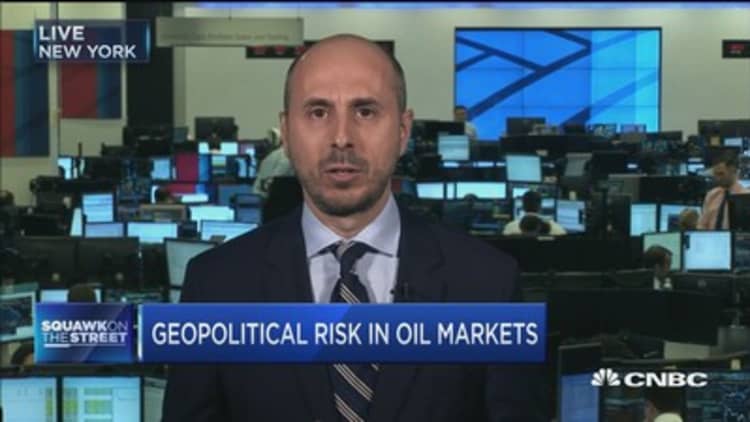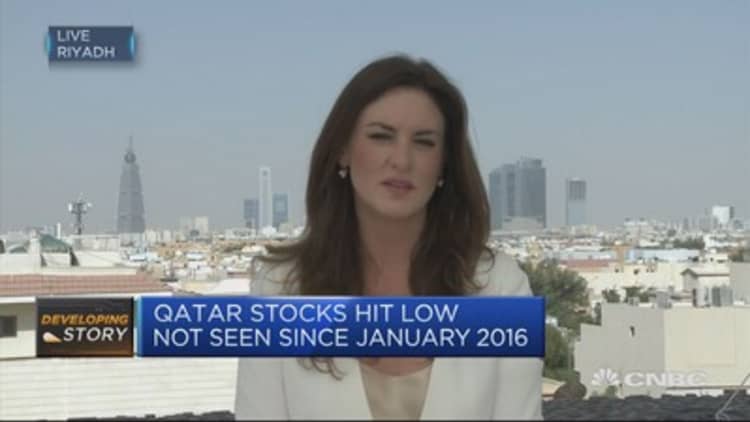
Oil prices edged upward Tuesday, finding technical support after sliding below $47 a barrel on pressure from a diplomatic rift in the Middle East and sustained high crude inventories in the United States.
U.S. West Texas Intermediate crude ended Tuesday's trading sesson up 79 cents, or 1.7 percent, at $48.19. It fell in early trade, then bounced off technical support between $46.75 and $46.95 and edged upward.
Benchmark oil rose 59 cents, or 1.2 percent, a barrel to $50.06 by 2:34 p.m. EST (1834 GMT)
The price band that had been providing technical resistance for WTI has shifted to support, according to Fawad Razaqzada, a market analyst at Forex.com. "If this area were to break down in the next few days then this would end any bullish hopes in the short-term," he said.
Oil prices remain 6-7 percent lower than they stood before OPEC and its non-OPEC allies said they were extending output cuts until March 2018. The initial six-month deal to curb output had been due to run till the end of this month.

Leading Arab powers including Saudi Arabia, Egypt, and the United Arab Emirates cut ties with Qatar on Monday, accusing it of support for Islamist militants and Iran. Ships coming from or going to Qatar were barred from docking at Fujairah, in the UAE.
Surplus oil in many parts of the world and developments with Qatar had traders nervous, even after Kuwait Oil Minister Essam al-Marzouq said Qatar remained committed to restricting crude output under an agreement between OPEC and several non-OPEC suppliers.
Many traders, confronted by surplus oil in many parts of the world, were unnerved on Tuesday.
Greg McKenna, chief market strategist at futures brokerage AxiTrader, said there was "a real chance" OPEC solidarity surrounding its production cuts might fracture.
"The measures by the anti-Qatar alliance signal commitment to forcing a complete change in Qatari policy or creating an environment for leadership change in Doha," said Ayham Kamel, head of Middle East and North Africa research for Eurasia Group.
With oil production of about 620,000 barrels per day (bpd), Qatar is one of the smallest crude producers in the Organization of the Petroleum Exporting Countries, but some investors fear tension within the cartel could weaken its agreement to hold back production in order to prop up prices.

Several analysts said these fears were exaggerated.
"The OPEC agreement stands and is highly unlikely to change because of tension with Qatar. Crude production in the Middle East will not change because of Qatar," said Oystein Berentsen, managing director for oil trading company Strong Petroleum.
David Wech, managing director of Vienna-based consultancy JBC Energy, agreed: "We do not see too much cause for concern at this point regarding potential risk to the OPEC-led supply accord currently in effect."
Focus is likely to shift to U.S. inventories ahead of government data Wednesday.
U.S. crude output has jumped more than 10 percent since mid-2016 to 9.34 million bpd, industry figures show.
"The relentless increase in U.S. oil production appears to have the market worried that the OPEC cuts will be completely nullified by the increased U.S. production," said William O'Loughlin, analyst at Rivkin Securities.

